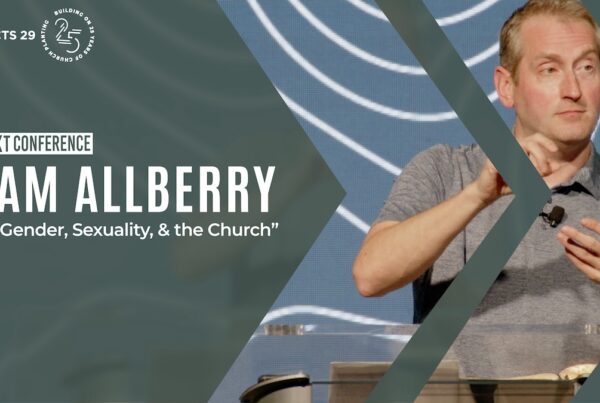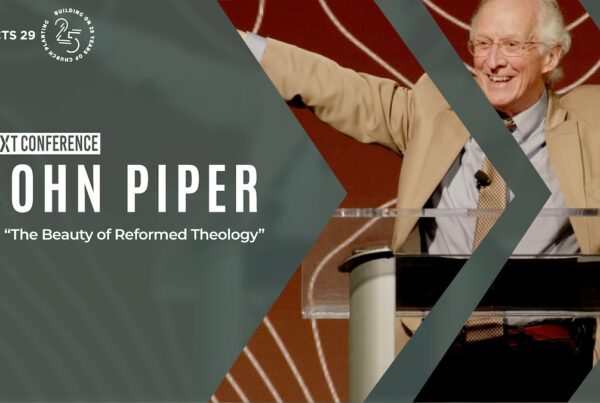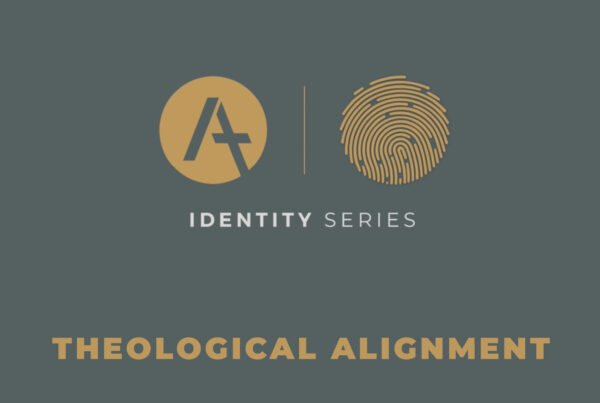This year has brought health catastrophes, financial upheavals, racial divisions, relational strife, and political turmoil. We’re exhausted from a year of hardships. And in our weariness, we’re often tempted to grasp at short-term gratification, to put our nose down and grind it out, or find ways to anesthetize or escape our pain.
But there’s a fourth option. In our affliction, we can recognize our need for hope, faith, joy, and peace. We can cling to Christ in whom we hope (Ps. 33:22), who authors our faith (Heb. 12:2), who fills us with joy (Rom. 15:13), and who himself is our peace (Eph. 2:14). We’re anticipating Jesus. That’s what Advent is all about.
The Christmas story is full of painful longing. Mary waited to see how people would receive news of her unexpected pregnancy. Joseph waited to be able to return to his hometown as Herod searched for baby Jesus. The inhabitants of Bethlehem desired justice for their slaughtered baby boys. And everyone longed for good news of great joy.
Advent, which means “coming,” is both the beginning and the end of humanity’s waiting. It’s the season the church celebrates the first coming of Jesus after thousands of years of waiting while continuing to wait for his return. As we long for many things in 2020, what can we learn about our waiting this Advent season?
Waiting with Hope
Ours isn’t a society that waits well. Fast food restaurants now have two drive-through lanes because one isn’t quick enough. We refresh our browsers if we must wait more than ten seconds. Mirrors were installed around elevators during the 20th century to distract people as they waited. Baggage claims at most airports aren’t anywhere near the plane so people will be walking instead of just waiting.
In all our waiting, we can further distract ourselves with devices, streaming, social media, alcohol, and more, or we can learn the sacred grace of waiting with hope.
In 2020, we’re waiting in a whole new way. We wait for a vaccine. We wait for political systems to deliver what they promise. We wait to gather again safely. And in all our waiting, we can further distract ourselves with devices, streaming, social media, alcohol, and more, or we can learn the sacred grace of waiting with hope. This is the purpose of Advent.
Waiting with Patience
In her book, Strange Rites, Tara Burton argues that America isn’t becoming more secular. America has remained spiritual as we “remix” religion instead of renouncing it. She argues we curate our faith the way we curate our Facebook pages, shifting from institutional religion to intuitional belief. We craft a spirituality around our desires, and one of our supreme desires is instant gratification. We curate an à la carte spirituality void of hard things and full of easy ones, yet woefully ill-equipped to deliver what we ask of it. We’re unwilling to wait for God’s promises, so we distract ourselves with shallow pursuits that ultimately deplete us.
Our curated religion seeks security in bodies guaranteed to fail us, hope in money incapable of changing us, meaning in partners that will never satisfy us, and purpose in a country that only offers a “pursuit” of happiness. We want to enjoy something inferior in the present rather than wait for Someone superior in the future. But our carefully crafted spirituality is failing us. When we behold the incomparable beauty of Jesus Christ, we’ll gladly wait with patience because he alone is worthy.
Waiting for Someone Eternal
This Advent, we share the common struggle of waiting in a new way, and by God’s grace, we have yet another reason to remind ourselves who we long for and the promises we have in our waiting. We can be comforted by the real instead of fooled by the remixed. The irony in our culture is that many non-churchgoers embrace the Advent season. They sing “Silent Night,” display the nativity in their homes and maybe even read Luke chapter two without realizing Jesus is who we await.
We curate an à la carte spirituality void of hard things and full of easy ones, yet woefully ill-equipped to deliver what we ask of it.
The necessity of waiting reveals we lack something essential in this life. C.S. Lewis said, “Creatures are not born with desires unless satisfaction for those desires exists.” This doesn’t mean all our desires are inherently good, but rather our unsatisfied state exposes our deficiency, and ultimately, our dependence on another.
Whether we realize it or not, Jesus is the true desire of our hearts. He invites us to come to him and find the rest for which we long. In him, God promises not only to give us what we await but to conform us as we wait. And we aren’t waiting aimlessly. We’re being transformed to the image of the Son progressively (2 Cor. 3:18).
This Advent season, let’s remember Jesus came here to suffer on the cross and endure God’s wrath so we won’t have to. Let’s proclaim he’s bringing a kingdom that’s so satisfying we’ll never have to wait again. Let’s be clear we aren’t waiting for what God can do for us, but God himself. So if you’re feeling anxious, depressed, or alone this Christmas, maybe the best question you can ask yourself is, “What are you waiting for?”
EDITOR’S NOTE: We believe the local church is God’s primary mission strategy on earth. Therefore, being faithful to the Great Commission means being passionate about church planting. As we near the end of the year, will you consider supporting global church planting by giving to acts29.com/give?











